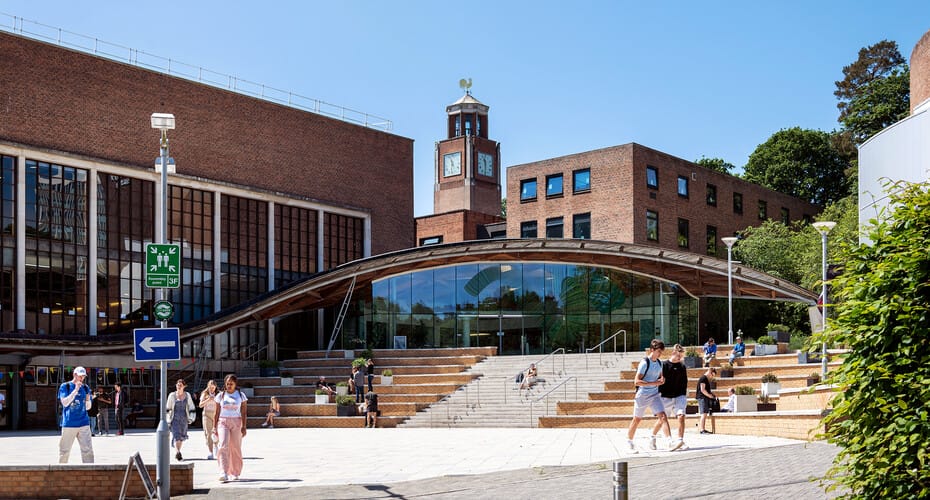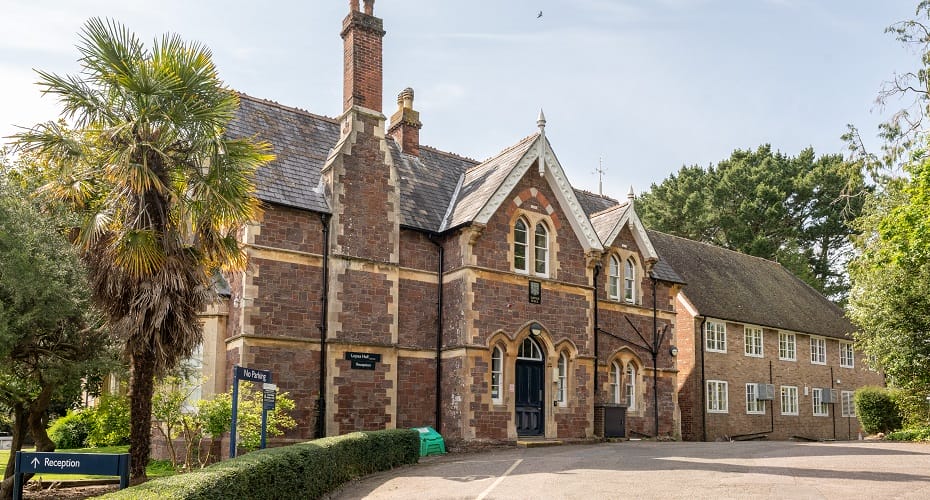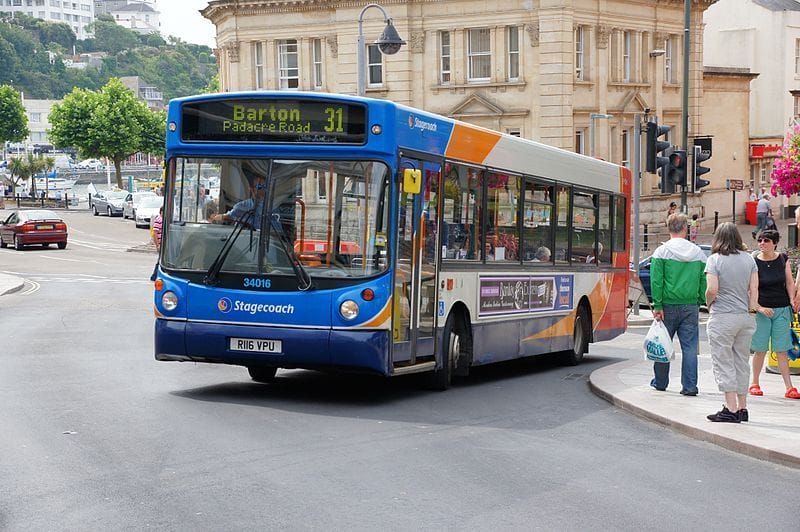By Study Inn
Founded in the mid-20th century, the University of Exeter boasts a rich history, starting life as a School of Art in 1855. Exeter University consistently establishes itself as a leading educational institution in the UK and is a member of the prestigious Russell Group. Over the years, the university has played a pivotal role in shaping minds, fostering research, and contributing significantly to various academic fields. Its reputation is not only built upon its academic excellence but is also enhanced by the city it calls home. Exeter, with its harmonious blend of history and modernity, has garnered accolades for its student-friendly atmosphere. This sentiment was recently echoed in Study Inn’s recent campaign, with Exeter coming third place as the most fun place to be at university in our 2023 rankings!
But, new students might be wondering — is Exeter expensive for students? Here, we’ll take a look at the cost of living in Exeter as a student, including tuition fees, living expenses and accommodation costs. Use this as your go-to guide for student expenses, with some useful tips on how to save money studying in Exeter.
How much does it cost to study at Exeter University?

The University of Exeter, like many prestigious institutions, has a diverse fee structure tailored to its various programs and undergraduate and postgraduate courses. For UK undergraduates starting in 2023, the fee is £9,250, the UK government’s current maximum. This might slightly increase yearly based on government policies. For those pursuing BMBS Medicine at Exeter, the standard £9,250 fee applies for the initial four years. However, in the fifth year, the NHS graciously covers the tuition.
Students on a four-year degree who spend a full academic year abroad are charged a reduced fee of £1,385. Those who undertake a full year of work placement, either within the UK or internationally, benefit from a lowered fee of £1,850. For international undergraduate students and postgraduates, fees can differ according to academic subject, so it’s best to check on the University of Exeter’s site depending on your chosen course.
The University of Exeter offers a range of scholarships and bursaries to support your education — including Sports and Choral Scholarships for especially talented students. Scholarships are awarded on merit and bursaries aim to help students from financially disadvantaged backgrounds.
Cost of student accommodation in Exeter
When it comes to living in Exeter as a student, there are various accommodation options to consider. Firstly, there’s the university-provided accommodation, which offers an array of choices at a cheap cost that many students find appealing. For a standard room without an en-suite, Exeter’s university halls start at £143 per week (£572 per month). This includes a library, common room, laundry facilities and WiFi. For active students, Lopes Hall has tennis courts and green spaces just outside. Private rentals near Exeter’s campus are around £600 per month, which is around £150 per week. With separate utility and entertainment costs averaging around £158 altogether, monthly student costs look a lot more like £730+ — excluding groceries and membership fees to gyms.

For an alternative choice that sees bills, entertainment and even cleaning and maintenance fees taken care of, why not try all-inclusive luxury student accommodation? A notable mention in the accommodation scene is Study Inn’s Walnut Gardens. Not only is it situated a mere 8-minute walk away from the main campus, but it also stands out for its cost-effective living solutions, making it a popular choice for many students.
About Study Inn’s Walnut Gardens

Experience upscale student living with our premier serviced apartments at Walnut Gardens. Marrying the seclusion of individual en-suite bedrooms with the buzz of communal interactions, our accommodations foster both privacy and camaraderie. An exclusive perk for our residents is the Luxe Lounge – a chic, multifaceted haven curated for relaxation, mingling, and entertainment.
Nestled within each apartment are 5-6 exquisite en-suite rooms, each encircling its dedicated Luxe Lounge. This lounge shines with contemporary communal spaces and a state-of-the-art kitchen. Moreover, our diligent housekeeping team ensures it’s spotless daily, letting you focus on bonding with friends. Each kitchen space is accentuated with personal fridge/freezer sections and cupboards, each secured with a key card system. With amenities ranging from a drinks cooler to a rice cooker, blender, and even a dishwasher, kitchen chores are a breeze.
The breakfast bar emerges as a congenial spot for casual kitchen interactions. Alternatively, recline on plush sofas in the living area, entertained by a 55-inch smart TV and a plethora of games and consoles. Dive into a spirited, dynamic community, crafting memories with old pals or connecting with intriguing new faces.
Our commitment to an unmatched student experience in Exeter goes beyond just accommodation. Every room guarantees inclusive utility bills, and access to an on-site gym, yoga room, wellness spa, entertainment spaces, study zones, a movie lounge, and an outdoor area. Other perks include bike rentals and secure storage, lightning-fast Wi-Fi, round-the-clock staff, mail services, frequent social gatherings, prompt maintenance, and a welcome pack of kitchen and bedding essentials. All of these luxuries are enveloped into one comprehensive rent, ensuring a hassle-free stay.
Is it cheap to live in Exeter?
Unfortunately, Exeter is rather on the pricey side as a city. The cost of eating out and grocery shopping is estimated to cost residents about £186 per month, above the average student food and grocery costs of £165. In fact, the south-west of the UK, where Exeter University is located, is the most expensive place to be a student in the UK – with monthly living costs setting students back a staggering £962. That’s more than £100 a month higher than the typical cost for students in Wales, Northern Ireland, the Midlands and the North East.
Transportation

Living in Exeter means considering transportation costs to lectures and to your mate’s house parties. From public transport fares to potential student discounts available, every penny counts. On average, transport costs for the month will set students back £62 in Exeter. While England’s public transport isn’t the most affordable in Europe, in Exeter, many students find walking the 20-minute route from the city centre to the campus sufficient. Buses, operated by Stagecoach, do provide regular services, with the prominent Line D costing £1.80 for a one-way trip, running from 6:30 am to 11:30 pm. Those considering frequent bus travel might opt for a bus pass, priced at £230 annually or £137 a term. Rail travel, though pricier with a trip to London costing about £70, is more reasonable within the south-west, like the £5 Exmouth return trip. To maximise savings, use National Rail Enquiries for bookings and student railcards for a significant travel discount.
Cost of living tips for students in Exeter
Your academic journey doesn’t have to break the bank; learn how to maximise your savings while enjoying the vibrant student scene. Here are some tips to keep your student savings in check:
- Student Discounts: Always carry your student ID. Many places in Exeter offer discounts, from shops to eateries.
- Part-time Jobs: Explore university and city-centre roles for flexible, student-friendly work opportunities.
- Second-hand Buys: Opt for used textbooks, furniture, or bikes. Check platforms like Gumtree or Facebook Marketplace for cheap used items, or use apps like Vinted or Depop to pick up second-hand steals and sell your unwanted clothes and shoes.
- Budget: Use free online tools to help manage and track monthly expenses.
- Group Meals: Cook in groups to save on food expenses. Buy in bulk and split costs with flatmates. One of the easiest ways to do this is using an app called Splitwise, which automatically calculates how much each flatmate owes per item/ bill
- Public Transport: Utilise student deals on buses, especially Line D by Stagecoach.
- TOTUM Card (formerly the NUS extra card): Offers a variety of discounts on entertainment and essentials. UNiDAYS is also a platform that offers exclusive discounts and promotions to verified students. By partnering with various brands and services, UNiDAYS provides students with reduced prices on a range of products, from fashion to tech. Another good discount site students can use is Student Beans, which has become increasingly popular in recent years
- Eat In: Limit dining out. Home-cooked meals save money.
- Shared Living: Shared flats or university halls are often more affordable than solo living.
- Local Markets: Get fresh produce at local markets, often cheaper than supermarkets.
- Free Events: Attend university and city-hosted free events for entertainment.
- Mindful Utilities Use: Share utility costs with flatmates and practise energy-saving habits.
- Library First: Before buying, check the university library for academic resources.
Maybe you’re heading to Exeter next year or this year, or perhaps you’re sizing it up as a university you’re interested in. Whatever your situation, remember that Exeter is an expensive place to be a student. But, by employing some of the tips above and investing in all-inclusive student accommodation, you can end up saving money in the long run on additional expenses.
Heading to Exeter? Check out our all-inclusive accommodation just 8 minutes away from campus and book now!





